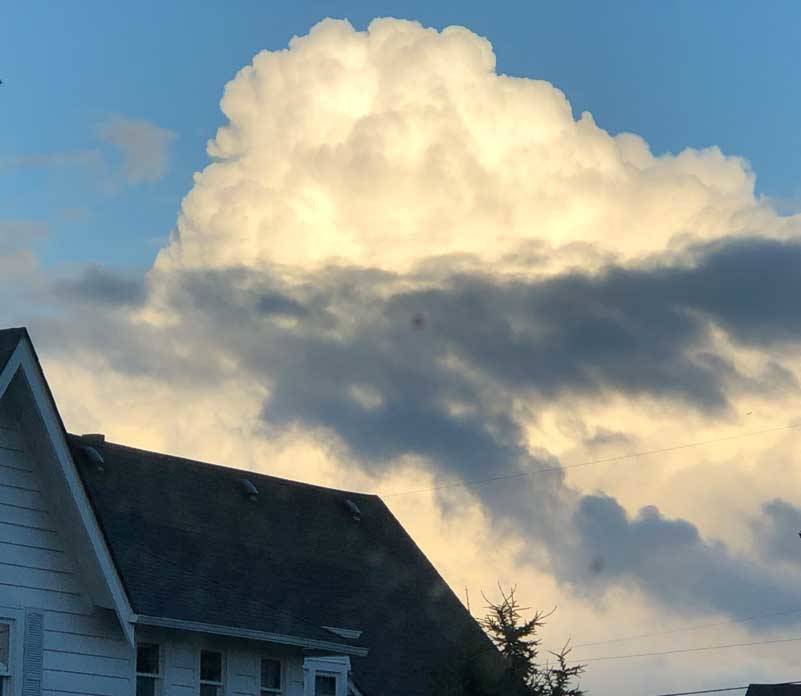By Morf Morford
Tacoma Daily Index
One of the reasons so few of us can make sense of, let alone respond to the housing market is that we are using a metaphor that worked once – if ever.
The housing bubble many of us refer to from a decade or so ago was a financial house of cards that had to collapse – and we all knew it.
Factor in too loose lending, unqualified buyers and low interest rates and required down payments and a housing collapse had to happen.
Just about anyone in the housing market saw the housing crash of 2008 coming – we just didn’t know when – or how serious it would be. That was a classic bubble.
By definition, bubbles fill quickly and pop just as quickly. We are not in a bubble.
The pressure on our housing market has taken years, more than a decade in many places, to get us where we are today.
Market demand shows no sign of slowing any time soon.
And barring any unforeseen economic collapse, our housing market should simmer, if not boil, for years to come.
I propose “balloon” as a housing market metaphor for the 2020s. Like our housing market, balloons (at least compared to bubbles) take a while to fill.
Balloons can be popped, but most of them just slowly leak.
That’s what I think this housing market will do; slowly leak.
The housing market should stay strong for the next year or two. Or five. Or maybe even ten.
We don’t have the myriad financial instabilities and inequities of the previous housing crash. No erratic interest rates, unqualified buyers, house “flippers” and every other ingredient of a housing market disaster are at work in the 2020s.
Buyers may be paying astronomic amounts for housing – but many are bidding prices higher (often 10% but sometimes up to 20% more) – and more and more are paying cash.
In 2021, if a house sits on the market for a month, it is an exception. Most houses sell within two weeks or less.
In many neighborhoods, that would be much less.
And the cost can be more – far more. Almost half of all homes (46%) sold for more than their asking prices.
Don’t expect a course (or market) correction any time soon.
Here’s what sets apart our current market from any we’ve seen before.
Inventory
The first principle of economics – supply and demand controls this whole industry.
The shortage of inventory is caused by a few factors, including owners not wanting strangers (potential buyers) traipsing through their living homes during a global pandemic.
For the most part, few of us are inclined to move if we don’t have to.
Generational downsizing will hit this market hard, but not quite yet.
Another issue is the pace of new construction.
Years of sluggish new construction in the United States is just beginning to catch up, and many builders and construction companies went under during the Great Recession.
In short, inventory is gradually increasing.
Demand is likely to outpace supply for quite some time.
Location, as always in real estate, defines value.
Highly desirable neighborhoods will increase in value no matter what the rest of the market does.
Small towns and rural areas will continue to drain in population and price point as each new generation seeks its fortune in the ever-beguiling cities.
Interest Rates
Interest rates are at record lows – with no sign of increases nationally or globally on the horizon.
Interest rates at or near zero have become, for better or worse, the new market standard.
Millennial Buyers Entering the Market
Millennials are also entering the market like never before. There’s more of them, and they have more money than the previous generation. Or two.
The median age of first-time home buyers is now 33. Which just happens to be the average age of Millennials in 2021.
These buyers boost the market now, but are unlikely to be moving any time soon.
Lending Criteria
Anyone remember NINJA loans (no income, no job, no assets)?
Sub-prime, risky loans and all-around shady practices by banks and lenders practically defined the housing market in 2008. Mass foreclosures paralyzed neighborhoods, shuttered banks and ruined countless credit ratings.
It’s unlikely that the FED (or anyone) would allow a return to such reckless and self-destructive policies.
If you can wait
Don’t expect this market to drop by much, but it is likely to drop some.
Balloons last longer than bubbles, but they don’t last forever.
If you can afford to wait, you should be able to get a better value for your dollar in a few months or in the next year or so.
Check out those second choices and your not-quite-favorite areas.
You just might find the deal no one else is noticing.
And you just might consider house-hacking (https://thecollegeinvestor.com/21741/house-hacking/) – getting renters to pay your mortgage.
These are crazy times in the real estate market, and a little unconventional thinking just might make a big difference in your bottom line.






